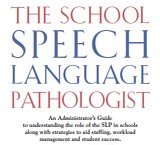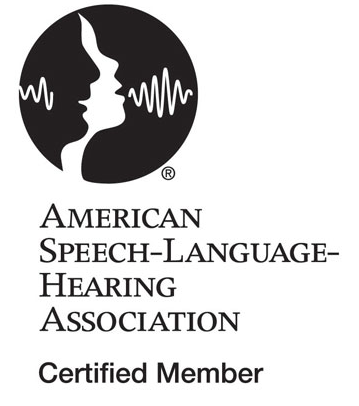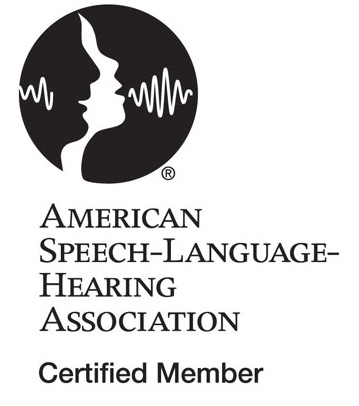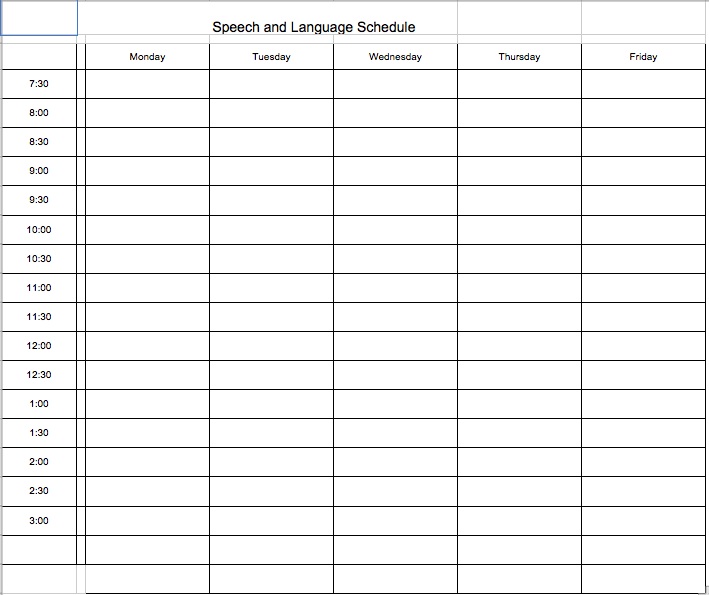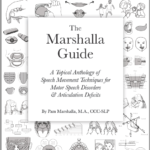SLP Chat
This will be a place where therapists can share ideas, problem solve and express concerns. Lets work together to make our jobs easier!
Teresa
Bags! Bags! We love bags!
Every so often the topic of “Which bag is best” come up on an SLP Facebook page. No matter what setting you’re in SLP’s need bags. I doubt many of us could function with out 2-3 or 10 good bags at our disposal. Having a bag that is functional and of course stylish is the main goal of any serious SLP.
I personally can’t leave the house without at least 4 bags hanging across my body and both arms. Each morning when I load up the term “Pack Mule” comes to mind.
- A big bag to shlep our daily materials from place to place. The younger the students the more physical materials we need, the bigger the bag.
- A bag to keep our files organized. We need 24/7 access to our paperwork since a good chunk is always done at home
A bag to bring our office wherever we go. These days our office is much more than just a day planner. Our computers and iPads and phones need to be protected. We carry all our cords and external chargers. Given the way we work we still need all those old school office supplies too. - A lunch bag big enough to back two meals, a snack and thermos. No time to stop, no time to go anywhere, little time to heat up and school cafes are not usually an option.
- Our purse, we still need our stuff (Guys not so much…lucky them)
- One large empty bag to help shift materials around or to try and consolidate so you only need to make one trip into the building.
After that last Facebook discussion on bags I decided to share some of the styles suggested. My own personal choice leans toward the medium canvas LL Bean Bag with long handles. I keep one for each setting I work in. My computer and files fit in well with some room to spare. The medium bag is also big enough for some smaller kid materials. I’ll use a larger Bean Bag or my ADK Packworks bag (which doubles as my grocery bag) if I have larger materials or tests to shlep. I also have several smaller pouch type bags for cords, office supplies, personal items, and stickers. Below are some of the bags mentioned as preferred by SLPs.
31 Large Utility Bag-This bag was mentioned several times and comes in many fun patterns
Lands End School Uniform Large Bag-this is very similar to the LL Bean bags I like to use
Roxy Woman’s Story Teller Shoulder Bag
Scout Bags-many cute styles and colors
Hobby Lobby Rolling Craft Bag-Not sure which style the SLP reporting was referring to but the rolling craft bags or carts have usually have lots of smaller compartments for all the little things we use. I’ve noticed more and more teachers using the rolling carts. I’ve also seen them struggle up stairs, even though we’re in accessable buildings.
Vera Bradley Carried Away Tote-You’re either a Vera Bradley fan or you’re not. However, this bag looks roomy. I wonder how the seams hold up.
Kelty Zippered Bags-The Kelty products look very strong. I couldn’t find the exact product the SLP mentioned but it look like three bags that fit into one. Not sure it had handels or not. Let me keep looking
Longaberger Craft Keeper Basket-This is a really cute idea. I own one Longaberger basket and do like it as a decorative piece. To make this work you would have to be a very savvy shopper, finding one on ebay or similar site. I use old baskets all the time in my office. You would also have to be fairly organized and have a special place in your car or office for it.
One person suggested picking up the free bags from Super Duper. I guess they’re pretty good and only found at ASHA
INC bags-again not sure which one was suggested many nice styles.
ADK Packworks-this doubles as a grocery bag
LLBean Bags-available at LLBean
I don’t think we’re ever going to get away from carrying our “speech stuff” around. If we have to carry bags we might as well do it in style. Maybe one of our eentrapaurnal colleagues with a family member in the luggage business will design a matching set of bags just for SLP’s. Light weight, functional and stylish bags that could rival Coach or Louie Vuitton, but be within an SLPs budget. So what is your favorite therapy bag and why?
March 2, 2016 Read Across America Day
March 2nd is The National Education Association’s Read Across America Day. Read more about it on the NEA website . Does your school do anything special for the Event. My school usually does a little something to rah rah reading. While this is a very important event, don’t forget to encourage your students or your children to read all the time. Reading is a great way to develop language, vocabulary and background knowledge.
Lots of cute t-shirts out there to celebrate the day and of course the required Dr. Suess hat
Are accommodations taking the place of specialized instruction?
Several years back the powers that be came up with RTI or Response to Intervention. Seriously what a semantically flawed title. RTI was interpreted and implemented differently in every school system based on the administration’s perspective. At first I disliked RTI, I felt it was a program that delayed needed services. RTI also suggested that accommodations could be a cure all for students who struggled.
Then for a while, I thought RTI was really working and it did for some kids. It was very dependent on the understanding/knowledge of the RTI team and willingness to put effort into the process. Teachers were beginning recognize weaknesses/issues and bring up names of at risk students sooner. However, looking back I think the names were brought up because teachers were more concerned that the student in question would not do well on state wide testing without accommodations. (It’s amazing how those students got fast tracked.)
There has to be some sort of a referral process but I’m still not convenience RTI is an effective model. RTI is set up to be a regular education service. Who makes up the RTI team will determine the quality of the accommodations presented. I’m just not convinced that those without a special education background can identify the possible weaknesses and make the proper suggestions for accommodations. Some school systems include a School Psychologist as part of their RTI team which is a big plus moving the process along in a more efficient manner, perhaps even skipping right into formalized evaluation.
Basically what comes out of Tier I and Tier II RTI levels are a lot of accommodations, many suggestions and a few observations. The teacher is instructed to put the generated accommodations in place to see if that works first. This makes perfect sense with some students but not all. With more involved students it’s 12 weeks or more wasted collecting data on accommodations. In many cases accommodations that a special educator, SLP or School Psychologist could tell you are not going to target the student’s specific underlying needs. Developmentally, 3 months is a very long time for a struggling student.
What is happening to the student during this long period of time without specialized instruction? Gaps in learning are going to emerge making it even harder for a student to catch up, school is going to get more difficult and confidence will flounder. Only those educators with a strong special education background are going to understand the underlying consequences.
Now look at IEPs, we actually have a section for accommodations in the document. Yes, most students will benefit from some accommodations. Some disabilities must have accommodations. However, since the advent of RTI and state wide testing the list of accommodations written into an IEP has grown significantly. Do accommodations without instruction, models and guidance really work? When it comes to accommodations, (written in RTI, 504s or IEPs) that is only one of many questions to be asked.
- Are we giving a false impression to parents and teachers that accommodations are going to cure the problem?
- Are students passing both classroom tests and state wide exams only because they are given every accommodation in the book?
- Do we provide so many accommodations without needed instructions that students have a false sense of their own capabilities and success?
- Are we teaching kids to expect the world to accommodate them in all situations? (Imagine the implications with college and work situations)
- Are we keeping kids from understanding their issues and disabilities, not holding them responsible for their behavior and learning?
- What is wrong with the system if we have to provide accommodations for so many students?
- Are individual accommodations needed because the need for universal supports and expectations has been ignored?
- Why would a special education national screening program be set up in a way that those suggesting accommodations do not have the educational background to understand learning disabilities and weaknesses?
- How can accommodations work when the underlying issues have not been formally identified or recognized by specially trained staff?
Every time I sit down to write accommodations for my speech and language students I focus on if the accommodation is needed, will it be effective, can it actually be implemented on a regular basis, will teachers/parents understand what an accommodation will achieve and will the accommodations keep the student from achieving higher expectations. I know one of the reasons I write so many accommodations, in an IEP, is to try to impress upon teachers (and those working with language disabled children) that language disabilities affect all aspects of learning. I also have the advantage of working on the underlying language needs and to help the student develop their own understanding and strategies for success.
Increased reliance on accommodations less specialized instruction is just a trend I have observed since the implementation of RTI and state mandated testing. Has your experience been the same?
Reading and understanding social context is key to good pragmatic skills
Today I am publishing a retread article I first wrote for examiner.com back in 2012. I thought about this article after presenting a paraprofessional training last week. The attendees asked if I could give them some specific examples of pragmatic difficulities in more typical students. While I was able to provide examples, my response wasn’t as organized as I would have liked. I think I will be sharing this article (or improving on the article) next time I present to paraprofessional or parents. As always suggestions and comments welcomed. Teresa
Reading and understanding social context is key to good pragmatic skills
When kids are taught “context” most classroom teachers are usually referring to the context of a story. Students, especially the ones who have non verbal learning disabilities, aspergers or even just lack social experience may not understand the “context” of social situations. Not understanding the context of a social situation may cause misunderstandings and this is where difficulties arise. Students may not understand when they are being teased or even bullied. They may not be able to distinguish bullying from playing around. They may not “get” the jokes. They may not understand sarcasm.
The students who for what ever reason miss or misinterpret social cues, social language or social context, are the kids who fall through the cracks. These students are usually bright enough to pass standardized tests. They’re usually doing well enough in the classroom to get by. Classroom teachers know something’s wrong but they just can’t put their finger on it.
Whenever teacher’s or parents suspect needs within the social skills area, it’s just as important to make a referral to the student support team. General supports may help a little but they will not significantly aid this type of disability.
So what’s going on? At that point it’s important to take a look at the child’s manner of performance and general interactions in both structured and unstructured situations. A skilled speech language pathologist or school psychologist will easily identify children who miss or misinterpret social cues on a regular basis. Those professionals will recommend further formal assessments if necessary. You many also begin to hear the term “pragmatics”, which is the all encompassing professional term for children who demonstrate needs in the social skill areas.
Administrators tend to say, “Just put them in class where they can practice their social skills.” That’s not the solution. Most people don’t understand children or even adults who have difficulty in the pragmatic realm. They can’t remediate social skills on their own. People with pragmatic difficulties may not even understand or realize what they are missing or misinterpreting. If remediation of pragmatic skills was that easy or automatic we wouldn’t have kids or adults with these issues. The reality is that these kids need some therapy, instruction or coaching, whatever you want to call it. Just like reading and math, awareness, learning and carryover of appropriate pragmatic skills is not going to happen without intervention.
Students need to learn about social context, how to analyze it and how to read it. You have to keep in mind that even with good instruction, pragmatic skills will probably always be an area of weakness the student. It’s important to give them the best tools possible. In most school systems either the School Psychologist, Speech Language Pathologist or better yet a combination of both will service the student with pragmatic needs. There are specific programs out there to address social skills or pragmatic development. However, it is just as important to learn and practice pragmatic skills in a naturalistic context.
Below are some beginning suggestions to help students raise their awareness around “reading situations” which aids understanding of social context. Many of these beginning skills are also referred to as learning to recognize and interpret nonverbal language.
- Look at the relationship of the person or persons involved. Is it a family member, a close friend, a stranger, a teacher or other respected adult. Go over several examples of how they might approach or react to different people.
- What is the tone of the interaction. Is it a happy situation, mad situation, sad situation. Go over several examples of this, be dramatic if necessary. Most children can tell what tone their parents are using so begin with that as an example.
- Are the people using sarcasm? How do you tell? Is someone joking around or are they serious. This takes a lot of practice. Even during role playing sometimes the kids aren’t sure if examples are serious or not. To see the confused look on their faces tell it all.
- Facials Expressions….It’s extremely important to know how to read those. You have to be aware and know what to look for. This come easy for most of us but for people who have difficulty with this pragmatic skill or have difficulty making eye contact it’s challenging. You miss a lot of nonverbal cues thus contributing to misinterpretations.
- Gestures…same as facial expressions you have to look for them and interpret them correctly to help understand intent.
- Mood….What is the mood of the situation. How can you tell? Did something just happen to make the person angry? In that case you will approach the situation differently. This again could invite a variety of emotions and all have to be figured out.
Most people develop pragmatic skills so naturally it’s rarely noticed. Even people who don’t have a specific diagnosis, associated with difficulties in the pragmatic realm, may misunderstand or misinterpret social situations. These suggestions are just the tip of the iceberg when beginning work on improving awareness and understanding of social context and overall pragmatic language development. Children who experience pragmatic difficulty have to be walked through almost every misunderstood situation for meaning and intent until they can start to do it on their own. It is highly suggested that a professional with experience working with pragmatic skill development be consulted.
Explain, explain and explain some more. If you have a child who frequently misinterprets social situations talk to them about it all the time. Let teachers and other adults they encounter know about the struggles your child has. Talk about how to handle situations and how to react to situations. If you know the child is entering a situation that may be difficult for them to understand, be proactive and prepare them for the situation. Talk to them about what to expect and how to handle a situation. Remember, you are your child’s best teacher and advocate.
Read more of my articles on Examiner at http://www.examiner.com/speech-pathology-in-boston/teresa-sadowski
Speech Language consultants and school contracts
One of the most challenging things about promoting a niche book is how to get it into the hands of the people the book is meant for. I’m sure most of my book sales have been to SLPs who hopefully share it with their administrators or at least find it supportive.
A couple of weeks ago I received a message on Facebook from a consulting service, mentioning that they purchased a couple of my books. The purpose of their purchase was to give the books to school administrators. The information I provided in the book not only explained the role of the SLP in schools, it helped outline and justify time needed to properly service the schools they contract with. I was blown away and thrilled. I had not even thought of this as a use for my book The Speech Language Pathologist, An Administrator’s Guide to understanding the role of the SLP in schools along with strategies to aid staffing, workload management and student success.
Where I live most schools provide their own staff to service Speech and Language students. Occupational therapy and physical therapy are more likely to be contracted out because they service fewer students. However, there are a few schools in my area that contract out to hospitals and agencies. I do believe this practice is seen more often in urban areas or areas where SLPs are hard to find.
Agencies who contract to schools, probably have to maintain a delicate balance with schools to develop and maintain contracts. School administrators in most situations probably base their needs on the time written into the IEPs or number of students. The problem with this is that an SLPs workload far exceeds the number of hours spent on direct service.
The School Speech Language Pathologist, An Administrator’s Guide to understanding the role of the SLP in schools along with strategies to aid staffing, workload management and student success, is organized to first explain the role of the SLP, what areas we service and who we might service. Then the book goes on to explain the workload tasks involved, time needed to complete workload tasks and variables that may increase both direct services and workload tasks.
If you are a speech and language consulting service looking for a guideline you can offer schools, this book might be right for you. Please take a look at reviews on Amazon or read excerpts on my publisher’s site, Booklocker.
Teresa
Do you have professional liability insurance?
With the beginning of the school year it is time to make sure you professional liability policy is up to date. This year I switched my policy to Trust Risk Management Services, who does continues as an active sponsor on this blog. TRMS provides Professional Liability Insurance for Speech Language Pathologists offering comprehensive policies tailored to your specific needs and reasonable rates. You can request an instant quote and learn more about professional liability insurance by going to the TRMS site or clicking the link located in the menu above.
I feel very strongly about the need for Speech Language Pathologists to carry personal professional liability insurance. While the schools and agencies I’ve worked for over the years obviously carry liability insurance, I understood that I couldn’t always depend on my employer for enough protection or cover me if I was sued personally. Carrying my own liability insurance also gave me the flexibility to work with private clients as the opportunities arose without worry. Professional Liability insurance for Speech Language Pathologists is affordable and easy to obtain.
Teresa Sadowski MA/SLP-ccc
AKA The School Speech Therapist
Caseload and Workload article review
I found what I think is a fairly new article on ASHA focusing on Caseload and Workload. The article makes a fair attempt at explaining workload vs. caseload. There are a few points I would disagree with in the article but for the most part it does a good job of explaining that some students just require more man hours than others based on their disability.
This is an article obviously written for school administrators, yet I doubt many administrators have even taken a look. The article is a little muddy in the middle on how to determine a workload analysis. But at least it brings up the topic. I don’t feel a workload analysis has to be that complicated. However, I guess even administrators have to show their data.
Caseload and Workload also presents several alternative therapy models. Again the explanation of the models is a little unclear even with examples. I think alternative scheduling approaches are good to consider as long as direct therapy is not compromised. As we all know larger groups and in class services does not often provide language disabled students with what they need to become more efficient. It is also important to note that alternative scheduling approaches may work in one community and not another, totally dependent on need, school schedule, parental influence and flexibility of administration.
On page two the article talks about how a higher caseload impacts intervention. This is not something we’re really able to advocate for in schools. I am glad ASHA is opening the door on that.
This article didn’t hit all the topics and factors that impact workload but ASHA is getting closer to the real problems. Workload and Caseload is probably written for SLPs to either implement on their own or to share with administrators. It is a good start and many of the ideas go along with what I’ve covered in my book The School Speech Language Pathologist, An Administrator’s Guide to understanding the role of the SLP in schools along with strategies to aid staffing, workload management and student success. Since part of the source for the article was the ASHA 2014 Schools Survey, I imagine that many SLP’s find workload a significant issue since most schools focus almost solely on caseload numbers/hours of direct service.
Is your school doing anything unique to manage workload?
Side note: The article states “the SLPs first responsibility is to provide educational services on his or her caseload”…It goes along with ASHA position on CCSS. I’m going to disagree with that till the day I die. I am a therapist not a teacher. For at least 20 of my 30 years as an SLP my job was to teach underlying language skills so students could access the curriculum and use language efficiently. All of a sudden the rules changed and we have to create goals based on curriculum standards not language development. Which means therapists in private practice are servicing students differently than we are. Not to mention our testing is not usually grade leveled nor are our materials. That’s my rant for the day
Scheduling Template
Can anyone use this to work out their draft schedule (I mean schedules)? I know it doesn’t take long to create but we know every minute counts. It is a pages doc. Scheduling template 2015 Here is the PDF Scheduling template 2015
Teresa
7th grade and the SLP
Yesterday I received a question that had to do with transition to 7th grade
“I find it difficult to transition students from 6th grade to middle school, meaning targeting appropriate goals/etc. What are the areas you find critical to this age? Do you have a screening tool you give to your students? What are the main areas you look at to gauge success in junior high/middle school?”
First lets talk briefly about 7th grade. 7th grade, no matter what middle school model your school has, is a significant bump up in academics, expectations, higher order language (understanding and usage, texts, adult usage, peers……) and higher order thinking. 7th grade is the year the speech and language students dismissed from therapy a couple of years ago will end up back on your radar.
The reason for this is that everything in 7th grade is more difficult and most if not all academics (could be argued by the finest SLPs) are language based. Higher order language and thinking is emerging in 7th graders. Most are going to “get it” in a very naturalistic way without any difficulty. However, for those that don’t “get it” will feel and look like a deer caught in headlights for most of their 7th grade year.
I personally spend a lot of time working with 5th and 6th graders on understanding the underlying vocabulary, language and concepts needed to help them understand higher order language. At the very least I hope my students realize they don’t “get it”, know how to think outside of the box or when to ask for help.
In the past I’ve written two articles on my previous blog Your Middle Schooler: A Unique Age and I still use the recommended books and techniques to this day.
Speech and Language Workbooks that Work
Vocabulary Development is Key to Higher Level Learning
Another suggestion is using appropriate ads from magazines and commercials. Talk about how the language is used to convey different or ambiguous meanings. Teaching students how to understand jokes, is a lot of fun. Finding jokes with accompanying pictures is ideal. I also use some modified techniques from the Visualizing and Verbalizing program. If you haven’t taken the training for this program I highly recommend it.
It is pretty easy to identify the students who don’t “get it.” However in this day and age we usually need some sort of data to prove this. I use scores from the CELF metalinguistics (formally the Test of Language Competence) and The Test of Problem Solving.
I hope these suggestions give you a good place to start. Teachers have a difficult time understanding that some kids don’t “get it” from a language perspective so it is important to at some point meet with teachers and explain the issue.
The School SLP-book reviews
Last April I introduced my first book The School Speech Language Pathologist, An administrators guide to understanding the role of the SLP in schools along with strategies to aid staffing, workload management and student success. It has been a lot of fun working on book promotion and I’ve received almost 100% positive feedback from other SLPs. Several SLPs have mentioned that they have good enough relationships with the administrators to share the book. Yeah! Two SLP’s reported that their administrators asked to peek at the book (double Yeah!).
Two SLP bloggers have been kind enough to highlight my book on their blogs. I want to share their perspectives with you. Both of these blogs are very professional and interesting so take a peek around their sites while you’re there.
The first review was written by SLP Darla Gardner: Ms. Gardenia’s Speech Room
The second review was written by SLP Mandi Schaumburg: Panda Speech Therapy
The School SLP can be purchased through a number of sites including AMAZON (see link on this page), Booklocker (my publisher) and Barnes and Noble
Thanks to both Darla and Mandi for taking the time to The School SLP. Any ideas on how to get this book into the hands of administrators is greatly appreciated.






